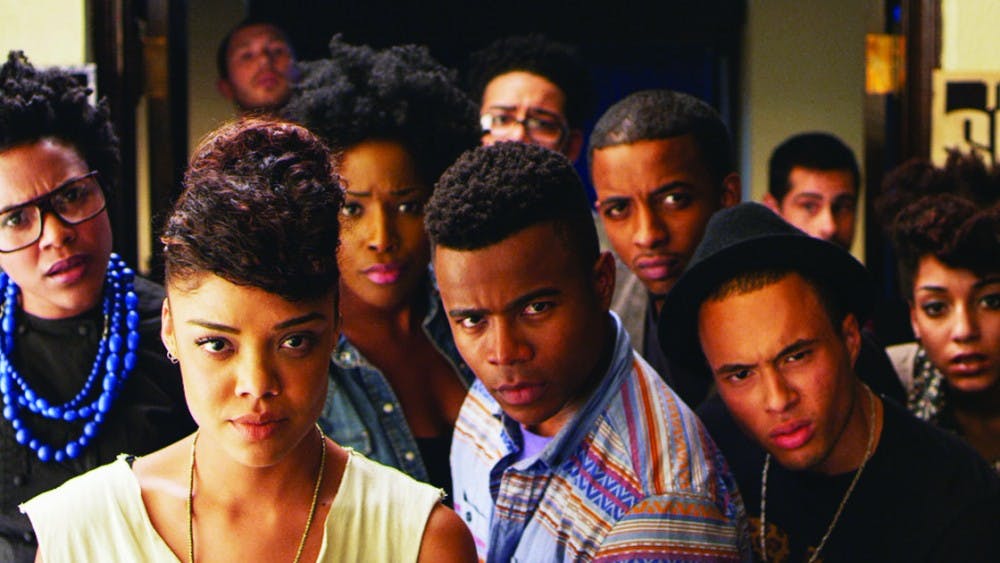Racial tensions, college partying, film festival awards, unique camera angles and breakout performances: this dramedy has all the ingredients of an Oscar winner.
The new movie “Dear White People” tackles racial tensions in the age of Obama in a film that addresses this issue both head–on and from alternative angles. The film asks a ton of questions and then provides multiple answers to them all. Can there still be racism in a country with a black president? What should schools do about social segregation? Who does affirmative action really help? What stereotypes do people have about other races or about the proper representation of his/her own? Why is everyone obsessed with “the other”? Can black people be racist? What is the difference between racism and prejudice? All of these get played out on campus at the elite Ivy League Winchester University.
The film focuses on four black college students: Troy, Coco, Lionel and Sam. Even though all the marketing and press for the movie focuses on all four of the students, Sam really steals the show, while many other characters (both black and white) besides the core four do excellent jobs in their supporting roles. The best part is, no single character is made to be totally the righteous hero or the all–evil bigot. Even with so many characters and sub-storylines, the film still gives every character complexity in their thoughts and opinions. Sam hosts her own, very provocative campus radio show called “Dear White People,” on which she addresses all the white students on campus and tells them exactly what she’s thinking. She creates a petition in opposition to the university’s new randomization of housing act, which threatens to break up Armstrong–Parker, the traditionally back dorm. As her movement becomes bigger and bigger, Sam and black culture on campus become the theme of the campus humor magazine’s annual, outrageous, Halloween party.
Like the party, this satire is outrageous, intentionally making its audience uncomfortable in a successful effort to be provocative. Watching as a current college student, you may find yourself needing to suspend your disbelief in the less–realistic moments (the president of the university just happens to have random meetings with students, Sam may or may not have written a book, etc.). But one thing is for sure, if you thought the party in the climax scene was unrealistic, the filmmakers want you to think again. As the credits roll, the audience is confronted with pictures and news articles about parties just like the one in the film that recently happened at universities all over the country. See this movie with a friend: you’re going to want to talk about it afterwards.







